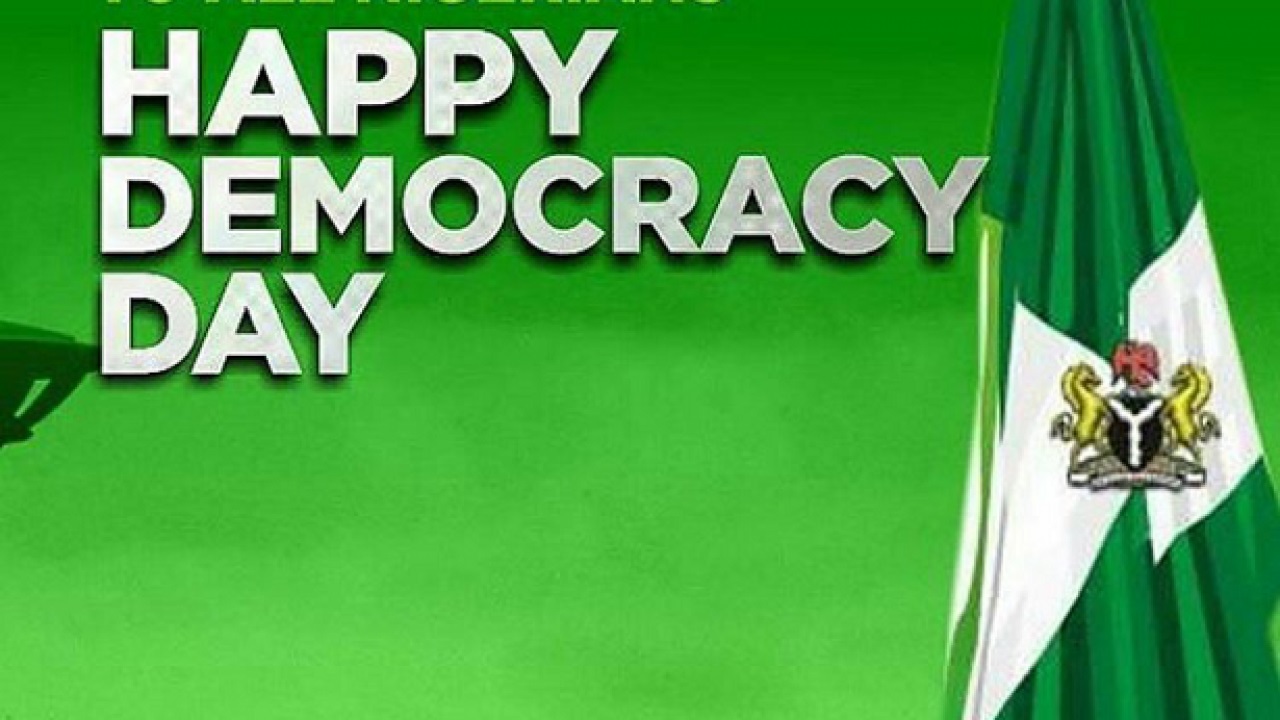Last month, Nigeria marked 23 years of uninterrupted democratic rule, the longest period in our political history in which leaders in the three tiers of government have continuously emerged through democratic elections.
For a nation, previously plagued by a bloody civil war and intermittent military coups from 1966 to 1999, over two decades of civilian rule through the ballot box indeed calls for celebration. We, therefore, congratulate Nigerians for this feat and hope that all efforts are made to deepen what we already have.
- I’m on a mission to make futuristic collection of NFTs the norm in Nigeria – Timi Nathus
- Golden Eaglets kick off WAFU B campaign with emphatic win over Ghana
Every year, since 2000, Democracy Day was celebrated on May 29. However, in 2018, Democracy Day was changed to June 12 ostensibly to honour the late Chief MKO Abiola—and others—who died in the struggle to reclaim the June 12, 1993 election he was believed to have won. As President Buhari put it in his Democracy Day speech in 2021, “When this administration decided to change our Democracy Day from 29th May to June 12th in my first tenure, it was not only to honour the sacrifices of the men and women of our country who fought for the return to democracy but also to demonstrate our commitment to satisfy the aspirations of the people and creating an environment for democracy to be an accepted way of life.”
Indeed, Nigeria’s democracy has grown through the years. We have recorded improved transparency in the electoral process which can be seen in the 2015 election where we witnessed the peaceful transfer of power from an incumbent president to another, a feat that is not common on the continent. Opposition parties and candidates at all levels have also been able to win elections, leading to growing confidence in the country’s electoral processes. Also, recently the new electoral act was signed into law, with certain provisions which will help deepen our democracy further.
The country, generally, has recorded developments in terms of infrastructure like the rebirth of the rail transportation among others. The cardinal pillars of true democracy include elected representatives, independent judiciary, freedom of expression and assembly, organized opposition, tolerance, cooperation and compromises, equality and, of course free press. These characteristics have featured in the country’s democracy in the last 23 years, but we must not take our eyes off the ball. There is need for improvement and we must work towards that. Democracy also means economic development and an improved standard of living for citizens. In several parts of the world, democracy has been associated with high economic growth through improved educational institutions, better healthcare, human capital accumulation, political stability, better infrastructure and better living conditions. In spite of promises by successive governments since 1999, the country has not attained enviable social and economic development, such that the phrase ‘dividend of democracy,’ has remained a significant illusion in Nigeria. Efforts should be made to change this narrative.
An essential element of a fruitful democracy is trust between leaders and citizens. Unfortunately, there is trust deficit in Nigeria, as the general population views promises by political leaders with cynicism. Many government policies have little bearing with the needs and desires of the people. The frustration and disillusionment that emanate from this trust deficit manifest as voter apathy. For instance, the number of registered voters has been on the increase since 1999, but the number and percentage of voters who turn out to vote during our elections have continued to dwindle since 2003. In 1999, there were 58 million registered voters, but 30 million voted, representing 52.6%. By the last general election in 2019, when we had 82 million registered voters, only 27 million, representing 35 per cent, actually voted. This is a minus for our democracy.
One reason for the continuing decline in voter turnout is that voters have been demotivated by the poor performance of successive governments in delivering the dividends of democracy to the people. But the people must not relent. As we move towards the 2023 general elections, the people must have a change of attitude and ensure active participation in the electoral process, as that is the only way they can cause change in the society. After all, in a democracy, citizenship is a job that requires citizens to constantly remain vigilant and hold elected and appointed officials to account, not only during elections but also in the period in between polls.
The obvious and existential challenge to our democracy is the rising and destructive activities of non-state actors who have held the nation in the jugular, causing deaths, and dispossessing the people of their hard-earned resources. For over a decade now, political leaders have failed to ensure security; the country is increasingly becoming ungovernable, from rural areas to urban centres, due to the activities of terrorists, bandits and common criminals operating beyond the capacity of our security agencies. No democracy should have space for insecurity that denies Nigerians of their rights to life, right to property, and freedom of movement.
Stakeholders in the nation’s polity must realise that peaceful transition from one government to another is not the only essence of democracy. They must deliberately work towards a united nation at all times. The people must also note that they have a role in entrenching true democracy, by ensuring that they exercise their franchise during elections by shunning money politics and voting for credible candidates during all elections. As we congratulate Nigerians for celebrating another Democracy Day, we urge all hands to be on deck to ensure that democracy is deepened and that the country reaps its material dividends.

 Join Daily Trust WhatsApp Community For Quick Access To News and Happenings Around You.
Join Daily Trust WhatsApp Community For Quick Access To News and Happenings Around You.


